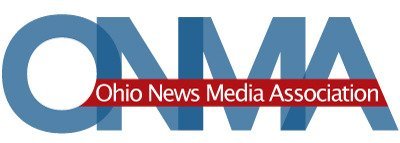Complete Story
12/16/2016
A mixed bag for ONA members, open government during crazy lame duck
By Dennis Hetzel, Executive Director
Like many groups, we’re still trying to sort out everything the Ohio Legislature did in the closing days of the lame-duck session – a not-to-be-forgotten event that occurs after the November election every two years as the current term ends. Bills that haven’t passed will die unless shoved through a shrinking funnel or resurrected as amendments to “Christmas tree” bills that make laughable the provision in the Ohio Constitution that bills must be about a single subject.
Departing legislators can shoulder the load of pushing controversial measures. Special-interest items that have never been in bills also can slip into amendments without much scrutiny.
You can agree or disagree about the outcomes, but the process makes it very difficult for even the best of us to keep up with everything that is happening. A few thoughtful legislators believe Ohio should join the states that don’t have or have eliminated lame ducks. That’s a good subject for our editorial writers to ponder.
So, how did Ohio’s newspaper industry and advocates of open government fare in the closing days? The answer is “not too badly; could’ve been worse,” though there are some new limitations on records and meetings that I will describe.
Fair housing: Senate Bill 134 had languished for many months; then it was amended into House Bill 463 during the last week and will become law if Gov. Kasich signs it. It will make it more difficult for housing advocacy groups to collect punitive damages from newspapers accused of running discriminatory housing ads, and it also would allow a newspaper to seek recovery of its attorney fees if allegations are groundless.
Public notices: Other new amendments to HB 463, a major law that reforms the foreclosure process, did not alter the existing newspaper notice provisions for sales. We also were successful in asking legislators to delete a provision in a banking-reform bill that would have allowed many notices involving banks to use newspapers “or comparable electronic formats.” This bill didn’t make it to the finish line and likely will return in 2017.
Open meetings: Two changes were made to allow specific groups to hold public meetings with some members participating remotely by video or phone. This includes airport-port authorities and public hospital boards. We worked with backers of the airport meetings to make sure they had “ONA-approved” language. The hospital board language caught us by surprise. The language isn’t awful but should be stronger.
“Mugshot sites”: Rep. John Barnes sponsored a bill to regulate the extortion-like tactics of websites that post police booking photos and then charge people as much as $500 for removal of the photo. It made it a crime to charge for removal of criminal record information but did not interfere with newsgathering activities. At the last minute, the House failed to move the bill to the governor’s desk. We closely watched other bills regarding sealed and expunged records to ensure there were no new limits on newsgathering as well.
Body cameras: No news was good news, though even the bills that didn’t pass were better than provisions we have seen in other states. We fully expect the Legislature to take up the public records issues with body cameras in 2017. We have been successful so far in arguing that presumption of openness must attach to these video records with limited new exemptions.
Pawnbrokers: A bill regulating pawnbrokers was amended into another measure. It passed with a provision removed at our request that would have limited access to inventory information the brokers must provide to police departments.
Open meetings II: A bill involving a number of changes in attorney general procedures includes a new requirement that the A.G. offer training on open meetings laws, not just open records, to public officials. ONA agreed to a change that limits access to some bid proposals on government contracts until after the bid is awarded.
Military records: This bill was amended into HB 471. It exempts orders for active military service that are in possession of state or local government, usually in personnel files, which are open under Ohio law. We argued this provision was unnecessary, and there certainly are situations in which it is legitimate to report why a public employee isn’t at work. This information also is available from other sources and often is disclosed voluntarily by military members (or spouses) on Facebook and other places. Plus, no one could cite any examples of terrorists making public records requests at local offices. We reluctantly agreed to a “sunset provision” that makes the records public in 15 years. The result is a new exemption, and we’re now up to “ff” in the open records law.
This concludes what we see as a generally successful two-year session from ONA’s perspective. Highlights include the new public records appeals process and our successful work with other trade groups to close a loophole to prevent sales tax on digital advertising and block renewed efforts to expand the sales tax to services such as advertising.




